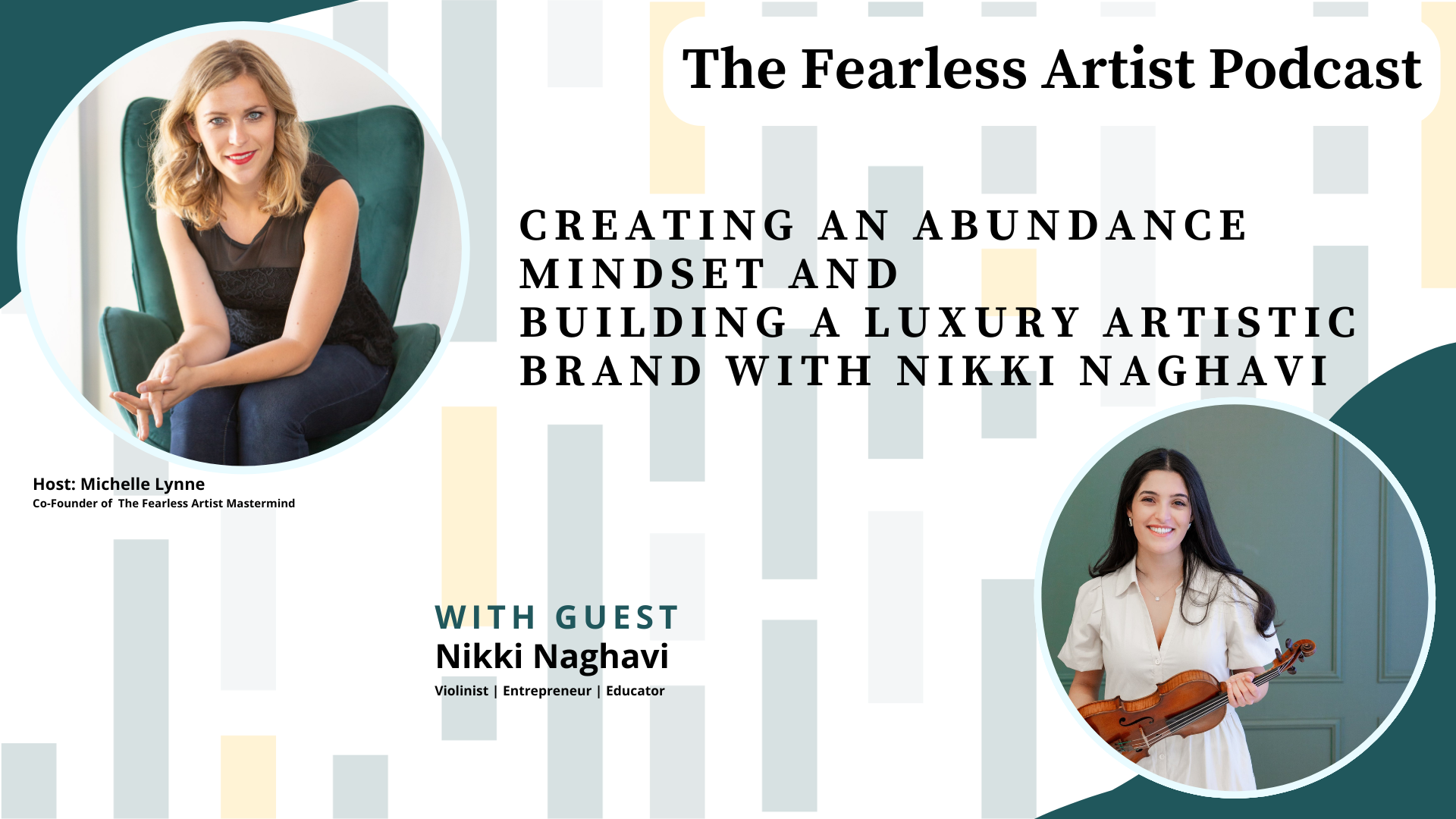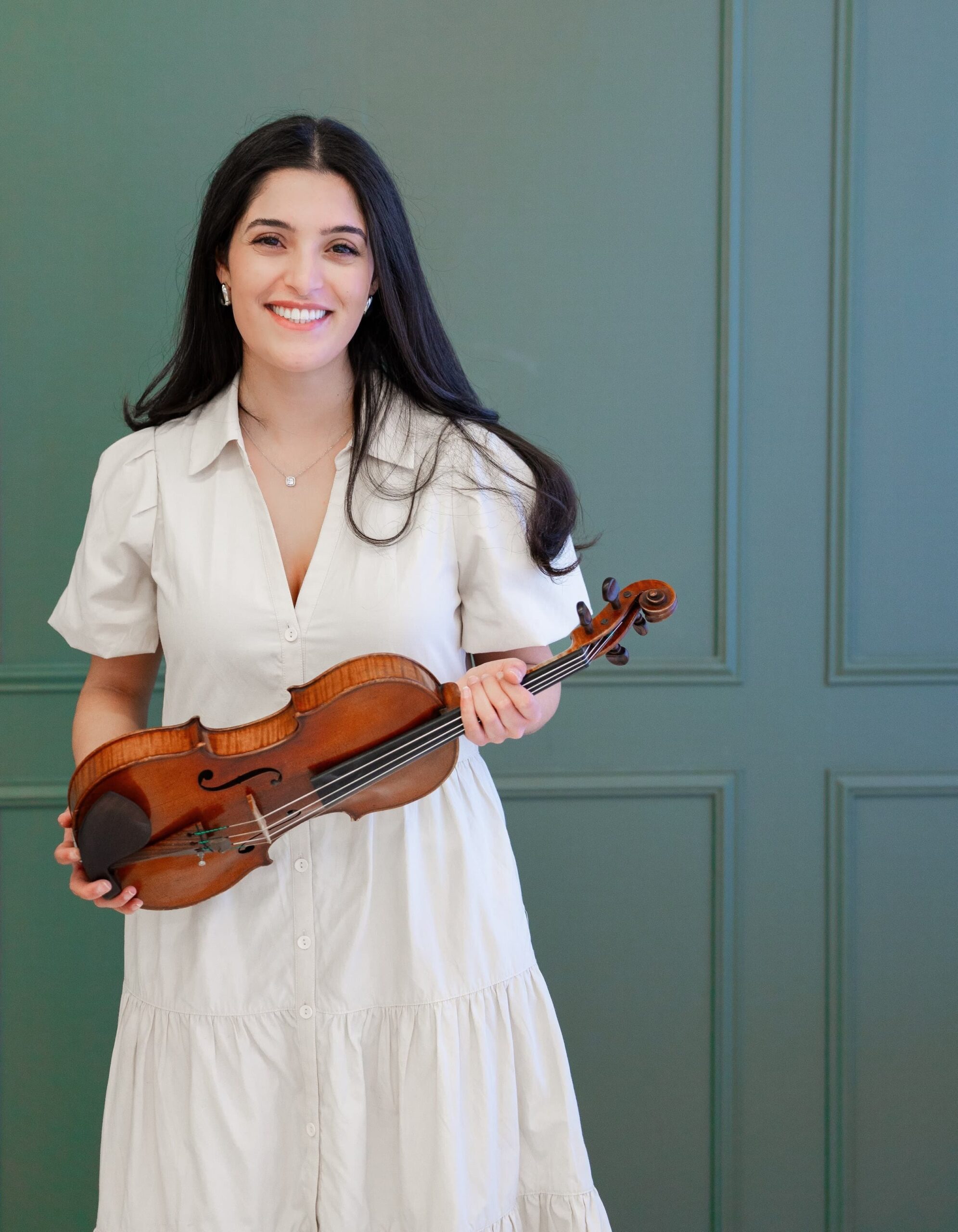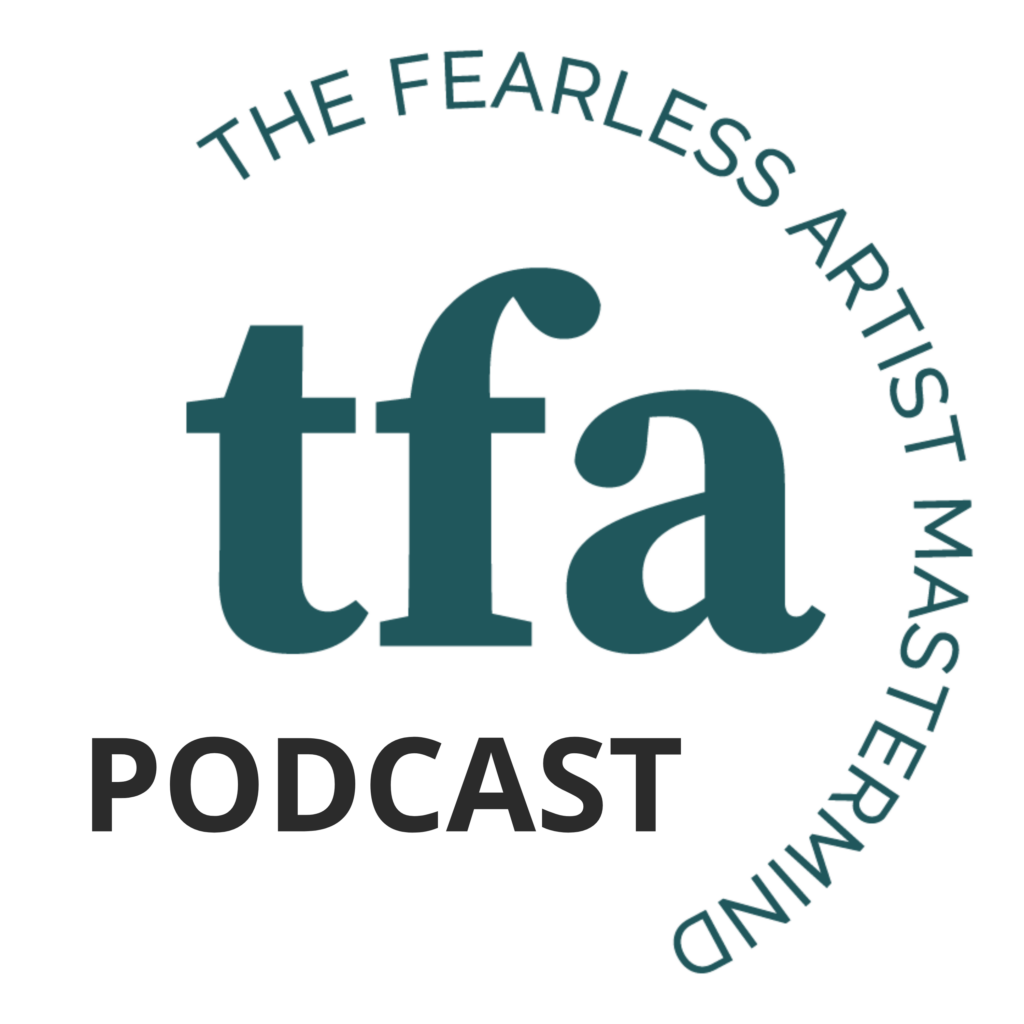Creating an abundance mindset and building a luxury artistic brand with Nikki Naghavi

Guest:
Nikki Naghavi
Violinist | Entrepreneur | Educator
Music has shaped my life for as long as I can remember. From my earliest violin lessons on instruments made out of styrofoam to bowing to roaring applause after concerts on some of the world’s most renowned stages, I’ve always been drawn to the power of live music, not just as an art form, but as an experience that connects people in a way nothing else can. That passion led me to study at the New England Conservatory, where I trained as a classical violinist and found myself equally captivated by the business of music.
That blend of artistry and entrepreneurship eventually inspired me to launch Glass Artists, a musician entertainment agency that provides conservatory-trained musicians for luxury weddings and corporate events. What started as a way to create more performance opportunities for top-tier musicians quickly grew into something larger – a business dedicated to elevating live music experiences and bringing world-class talent to unforgettable events.
Alongside my work with Glass Artists, I’ve taken on roles that bridge performance, education, and arts administration. As Special Projects Lead at the New England Conservatory, I focus on recruitment, marketing, and institutional engagement, working to expand the impact of NEC’s programs. Before that, I managed daily operations for NEC’s Expanded Education Department, overseeing string, piano, chamber music, and early childhood programs.
Beyond administration, I’m deeply committed to music education and accessibility. In 2020, I co-founded Through the Staff, a 501(c)(3) nonprofit that has provided over $556,000 in free music lessons to students who lost access during the COVID-19 pandemic. My work in education extends to private teaching, where I’ve had the privilege of working with violinists of all ages, helping them find their own musical voice.
Performance is still at the heart of what I do. I’ve played with ensembles such as the Boston Philharmonic, Cape Cod Chamber Orchestra, and the Tanglewood Music Center Orchestra, and I’m a founding member of the Beacon Street Quartet. You can also find me performing at Fever’s Candlelight Concerts in Boston and Dallas, where I get to share the intersection of classical and modern music in an intimate and immersive setting.
Currently, I’m pursuing an MBA at the Global Leaders Institute, deepening my understanding of business strategy and arts leadership. I also share my musical journey, behind-the-scenes insights, and lifestyle content on Instagram (@nikkinaghaviviolin), where I connect with a wide audience of music lovers, industry professionals, and aspiring musicians.
When I’m not at work, you’ll likely find me traveling, staying active, or discovering new cuisines, because just like music, food, fitness, and adventure have a way of bringing people together.

Subscribe to The Fearless Artist Podcast
Intro/Outro music by Michelle Lynne • Episode produced by phMediaStudio, LLC
